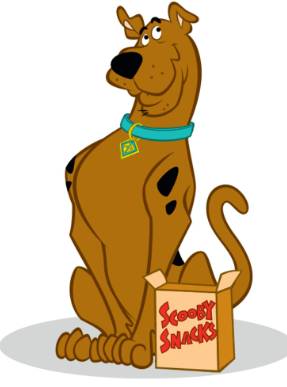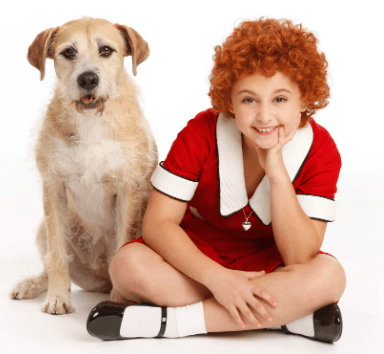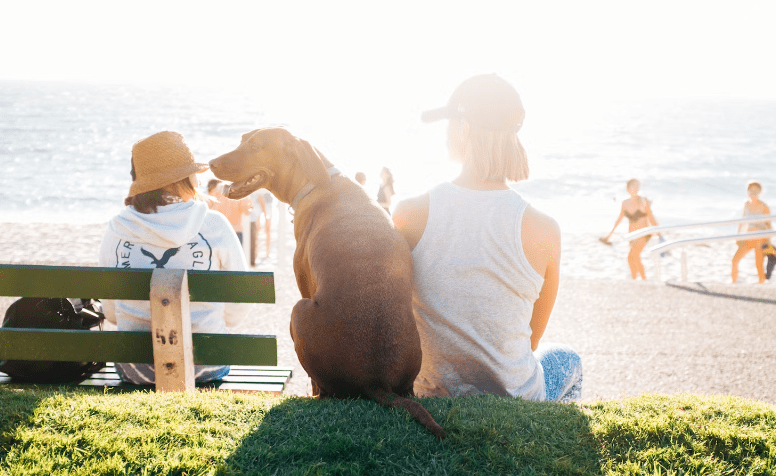Ah, the age-old quest for the perfect companion—one that offers affection, companionship, and, most critically, security.
If you’re a woman on the hunt for a four-legged friend who will not just wag its tail but also keep it fiercely upright against any potential threats, you’ve come to the right place.
With my background in canine research and behavioral analysis, I promise to guide you through the maze of breeds and temperaments to find that perfect protector.
From breaking down the essential qualities of an ideal guard dog to discussing the nitty-gritty of training costs, we’ve got a lot to cover.
Ready to find your canine knight in shining armor? Let’s dive in.
Table of Contents
Criteria for a Trustworthy Guard Dog for Women
Before we jump into our ultimate list of the best guard dogs for women, let’s talk about the criteria. What makes Fido more than just a pretty face?
Characteristics of an Ideal Guard Dog: Temperament, Intelligence, Loyalty
First off, temperament is key. A good guard dog is alert, but not aggressive. Intelligence is another major factor. A smart dog learns commands quicker and assesses threats more accurately. Finally, loyalty. You want a dog that’ll stick by your side, rain or shine.
Training Needs
Remember, even the best guard dog for woman needs training. Effective training is all about consistency, positive reinforcement, and meeting the dog’s physical and mental needs. If these boxes are checked, you’re set for success!
The Core List: 15 Best Guard Dogs for Women
Ready for the star-studded lineup of top doggy defenders? We’ve included a variety of breeds to suit different lifestyles and needs.
German Shepherd
- Origin: Germany
- Personality Traits: Intelligent, loyal, alert
- Health Considerations: Hip dysplasia, bloat
- Lifespan: 9-13 years
- Care Tips: Daily exercise, mental stimulation
- Fun Fact: They’re one of the most popular breeds in America!
Boxer
- Origin: Germany
- Personality Traits: Energetic, friendly, brave
- Health Considerations: Heart issues, hip dysplasia
- Lifespan: 10-12 years
- Care Tips: Lots of exercise, socialization
- Fun Fact: Initially bred to be a hunting dog!
Rottweiler
- Origin: Germany
- Personality Traits: Calm, confident, fearless
- Health Considerations: Hip dysplasia, obesity
- Lifespan: 9-10 years
- Care Tips: Balanced diet, regular vet visits
- Fun Fact: They date back to Roman times!
Doberman Pinscher
- Origin: Germany
- Personality Traits: Alert, fearless, loyal
- Health Considerations: Cardiomyopathy, hip dysplasia
- Lifespan: 10-13 years
- Care Tips: Mental stimulation, obedience training
- Fun Fact: They were initially bred for protection!
Akita
- Origin: Japan
- Personality Traits: Silent, dignified, loyal
- Health Considerations: Hip dysplasia, thyroid issues
- Lifespan: 10-15 years
- Care Tips: Moderate exercise, grooming
- Fun Fact: They’re considered a national treasure in Japan!
Bullmastiff
- Origin: England
- Personality Traits: Calm, affectionate, protective
- Health Considerations: Obesity, hip dysplasia
- Lifespan: 8-10 years
- Care Tips: Moderate exercise, no overfeeding
- Fun Fact: They can weigh up to 130 pounds!
Belgian Malinois
- Origin: Belgium
- Personality Traits: Energetic, intelligent, loyal
- Health Considerations: Hip dysplasia, eye problems
- Lifespan: 14-16 years
- Care Tips: Vigorous exercise, obedience training
- Fun Fact: They are often mistaken for German Shepherds!
Staffordshire Bull Terrier
- Origin: England
- Personality Traits: Affectionate, courageous, intelligent
- Health Considerations: Hip dysplasia, cataracts
- Lifespan: 12-14 years
- Care Tips: Daily exercise, socialization
- Fun Fact: Despite their tough appearance, they’re often called “nanny dogs” due to their gentleness with children.
Giant Schnauzer
- Origin: Germany
- Personality Traits: Alert, obedient, reliable
- Health Considerations: Hip dysplasia, eye issues
- Lifespan: 12-15 years
- Care Tips: Mental stimulation, regular grooming
- Fun Fact: They were initially used as cattle-herding dogs.
Rhodesian Ridgeback
- Origin: Southern Africa
- Personality Traits: Independent, intelligent, dignified
- Health Considerations: Hip dysplasia, dermoid sinus
- Lifespan: 10-12 years
- Care Tips: Moderate exercise, early socialization
- Fun Fact: Originally bred to hunt lions, hence also known as African Lion Hounds.
Border Collie
- Origin: United Kingdom
- Personality Traits: Energetic, intelligent, keen
- Health Considerations: Collie eye anomaly, hip dysplasia
- Lifespan: 12-15 years
- Care Tips: High exercise needs, mental stimulation
- Fun Fact: Known as one of the most intelligent dog breeds!
Great Dane
- Origin: Germany
- Personality Traits: Friendly, patient, dependable
- Health Considerations: Bloat, hip dysplasia
- Lifespan: 8-10 years
- Care Tips: Adequate space, moderate exercise
- Fun Fact: Despite their size, they often think they’re lap dogs!
Chow Chow
- Origin: China
- Personality Traits: Aloof, independent, loyal
- Health Considerations: Hip dysplasia, entropion
- Lifespan: 9-15 years
- Care Tips: Early socialization, moderate exercise
- Fun Fact: They have a blue-black tongue!
Alaskan Malamute
- Origin: Alaska
- Personality Traits: Affectionate, loyal, dignified
- Health Considerations: Hip dysplasia, bloat
- Lifespan: 10-14 years
- Care Tips: High exercise needs, grooming
- Fun Fact: They were originally bred for their strength and endurance to haul heavy freight.
Australian Shepherd
- Origin: United States
- Personality Traits: Intelligent, energetic, devoted
- Health Considerations: Hip dysplasia, epilepsy
- Lifespan: 12-15 years
- Care Tips: High exercise needs, mental stimulation
- Fun Fact: Despite the name, they were developed in the U.S., not Australia!
Qualities Women Look for in a Guard Dog
Choosing the best guard dog for woman involves more than picking the fluffiest pup from the litter. Here, we’ll delve into the characteristics you should prioritize to ensure you bring home a dog that fits your lifestyle and needs.
- Temperament: Look for a dog that’s alert yet calm. A nervous or overly aggressive dog isn’t ideal for women, especially for single women living alone.
- Size: The size of your guard dog should suit your living space. A Great Dane might not be the best dog for a single woman in a studio apartment!
- Low Maintenance: Dogs with minimal grooming and dietary requirements are often preferable for busy women.
- Trainability: Smart dogs are easier to train, making them the best dogs for single women who might not have prior experience with dog training.
- Energy Level: Consider how much time you can dedicate to exercise. A Border Collie, for instance, requires more activity than a Bullmastiff.
- Good with Kids/Other Pets: If you have other pets or kids, ensure that your future guard dog gets along well with them.
- Protective Instinct: You’re looking for a loyal and protective breed, perhaps the best guard dog for women who value security.
- Longevity: Breeds that live longer give you more years of companionship and protection.
- Allergen-Friendly: Hypoallergenic breeds like the Poodle are a great choice for women with allergies.
- Adaptability: The best guard dogs for women adapt to various environments—rural, urban, and everything in between.
- Exercise Needs: A lower-energy breed may be more manageable for those with demanding jobs.
- Intelligence: Smart dogs are not only easier to train but also better at assessing threats.
Training and Maintenance: What Women Should Know?
Training your pup isn’t just a pastime; it’s essential for safety. Let’s explore what goes into turning a furry pal into a reliable guardian.
Basic Training Requirements
When it comes to training the best guard dogs for woman, the basics include obedience, socialization, and specialized guard training. A responsive, obedient dog can be a true lifesaver in emergency situations.
Costs Involved
Maintaining a guard dog isn’t just about time; it’s also about money. Training, food, healthcare—the list goes on. Budget accordingly, especially for initial setup costs like fencing and dog-proofing your home.
Special Consideration: Are Female Guard Dogs Better?
Is gender a factor when choosing the best guard dog for women? We’ll explore this intriguing question, comparing the pros and cons of female versus male guard dogs.
| Male Guard Dogs | Female Guard Dogs | |
| Temperament | More aggressive | More sensitive |
| Trainability | Can be stubborn | Quicker learners |
| Size | Usually larger | Generally smaller |
| Health | Bread-specific risks | Heat cycles |
| Protection | Territorial | Family-oriented |
| Logitivity | Generally slightly shorter lifespans | Tend to live longer |
| Cost | Often eat more and have higher maintenance costs | Usually eat less, potentially lower maintenance costs |
Iconic Movie and TV Dogs: Women’s Protectors on the Big Screen
From Hollywood to your living room, we’ll discuss some iconic dogs that have played the role of protector for women on the silver screen. Discover how these famous canines mirror the variety of options available to you.
- Elle Woods’ Bruiser from “Legally Blonde” – Chihuahua: A pint-sized protector with a big heart.

- Dorothy’s Toto from “The Wizard of Oz” – Cairn Terrier: Not your typical guard dog, but loyal to the core.

- Daphne’s Scooby-Doo from the “Scooby-Doo” series – Great Dane: A somewhat cowardly dog, yet always there when it matters.

- Annie’s Sandy from “Annie” – Mutt: Proves that you don’t need a pedigree to be a great companion.

- Sansa Stark’s Lady from “Game of Thrones” – Direwolf: Noble and protective, the embodiment of a best guard dog for woman.

- Sarah Connor’s Max from “Terminator” – German Shepherd: Max represents the epitome of loyalty and bravery—traits that make the German Shepherd one of the best guard dogs for woman.

BONUS: More Guard Dogs Breeds Women Can Consider
If our initial list didn’t include your dream dog, fear not! This section will introduce you to additional breeds that are also among the best dogs for single women or those with families.
- Bernese Mountain Dog: Known for their friendly disposition, these gentle giants are good with families and make excellent companions.
- Tibetan Mastiff: Independent yet protective, this breed is great for women who want a less clingy but very effective guard dog.
- Cane Corso: Intelligent and loyal, the Cane Corso is a powerful protector that bonds closely with its owner.
- Kuvasz: A fearless protector with a keen sense of danger, ideal for women living in more isolated settings.
- Komondor: Known for their distinct “mop-like” coats, these dogs are vigilant and naturally protective.
- Shiloh Shepherd: A mellower alternative to the German Shepherd, they offer the same protective instincts but are often easier to manage.
- Anatolian Shepherd: Bred to guard livestock, these dogs are highly alert and have a strong instinct to protect their home and family.
- Belgian Tervuren: Highly intelligent and trainable, these dogs are well-suited for women who want a dog that can do it all.
- Puli: Don’t let the dreadlocks fool you; this smaller dog is agile and alert, making it a good watchdog.
- English Bulldog: Despite their gruff exterior, English Bulldogs are incredibly gentle and get along well with children and other pets.
- Shar-Pei: Known for their unique wrinkles, these dogs are often reserved but highly protective of their family.
- Newfoundland: These large dogs are known for their gentle nature and are especially good if you have kids around.
- Tosa Inu: A rare breed that’s both fearless and reserved; they are highly protective but need early socialization.
- Black Russian Terrier: Developed to work in various climates, this breed is versatile, intelligent, and highly protective.
- Caucasian Shepherd: Originating from the Caucasus Mountains, these dogs are natural protectors, making them well-suited for guarding properties.
Conclusion
Finding the best dog for single woman boils down to matching lifestyle, needs, and preferences. Whether it’s a German Shepherd or an Australian Shepherd, the best guard dog for a woman is one that provides both companionship and security.
FAQs
What Makes a Dog the Best Dog for a Single Woman?
Compatibility and shared lifestyle make a dog ideal for a single woman.
Are There Breeds That Are Naturally the Best Guard Dogs for Women?
While breeds like the German Shepherd and Rottweiler are often touted as the best guard dogs for women, the ‘best’ is subjective.
What is the most friendly but protective dog?
Breeds like the Bullmastiff and Staffordshire Bull Terrier are both friendly and protective.
What is the easiest guard dog to train?
The Border Collie and Belgian Malinois are known for their trainability.
Do dogs prefer female owners?
While it varies, some studies suggest that dogs may show a slight preference for female owners.
How Important is Socialization for a Guard Dog?
Socialization is crucial for guard dogs to distinguish between normal and threatening situations effectively.
Is Age a Factor When Training a Guard Dog?
While younger dogs are generally easier to train, older dogs can also be trained to be guard dogs. The key is consistent training and positive reinforcement, regardless of age.

